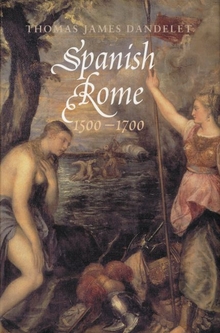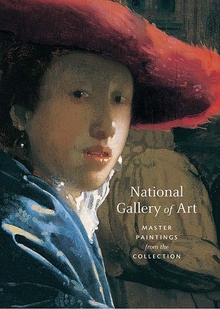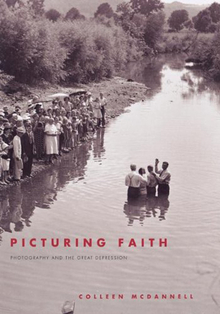Spanish Rome, 1500-1700
WARNING
You are viewing an older version of the Yalebooks website. Please visit out new website with more updated information and a better user experience: https://www.yalebooks.com
Thomas James Dandelet
In the sixteenth and seventeenth centuries, Rome was an aged but still vigorous power while Spain was a rising giant on track toward becoming the world’s most powerful and first truly global empire. This book tells the fascinating story of the meeting of these two great empires at a critical moment in European history. Thomas Dandelet explores for the first time the close relationship between the Spanish Empire and Papal Rome that developed in the dynamic period of the Italian Renaissance and the Spanish Golden Age. The author examines on the one hand the role the Spanish Empire played in shaping Roman politics, economics, culture, society, and religion and on the other the role the papacy played in Spanish imperial politics and the development of Spanish absolutism and monarchical power.
Reconstructing the large Spanish community in Rome during this period, the book reveals the strategies used by the Spanish monarchs and their agents that successfully brought Rome and the papacy under their control. Spanish ambassadors, courtiers, and merchants in Rome carried out a subtle but effective conquest by means of a distinctive “informal” imperialism, which relied largely on patronage politics. As Spain’s power grew, Rome enjoyed enormous gains as well, and the close relations they developed became a powerful influence on the political, social, economic, and religious life not only of the Iberian and Italian peninsulas but also of Catholic Reformation Europe as a whole.
Reconstructing the large Spanish community in Rome during this period, the book reveals the strategies used by the Spanish monarchs and their agents that successfully brought Rome and the papacy under their control. Spanish ambassadors, courtiers, and merchants in Rome carried out a subtle but effective conquest by means of a distinctive “informal” imperialism, which relied largely on patronage politics. As Spain’s power grew, Rome enjoyed enormous gains as well, and the close relations they developed became a powerful influence on the political, social, economic, and religious life not only of the Iberian and Italian peninsulas but also of Catholic Reformation Europe as a whole.
Thomas James Dandelet is assistant professor of history at the University of California, Berkeley.
“Thomas Dandelet has brought a wealth of detail and a subtlety of interpretation to a crucial moment in the history of modern Europe. This magnificent book will transform the way we think about the fate not only of Spain and Rome but of the still enduring legacy of the Roman empire itself.”—Anthony Pagden, Johns Hopkins University
“Thomas Dandelet’s accomplishment is a pioneering one—this book stands alone in its field. Spanish Rome is based on imaginative archival research, all of it presented with consummate care, precision, and clarity. This is a painstaking reconstruction of a world that has been ignored for far too long.”—Carlos Eire, Yale University
“Explores close ties between papal Rome and the Spanish Empire, including a large and influential Spanish community in the Italian city; topics include the role of the papacy in Spanish absolutism, monarchy, and imperial politics.”—Chronicle of Higher Education
“This book studies a fascinating period in the history of the City of Rome. . . . This history . . . approaches this important era in Rome’s history from a new perspective, that of the city’s role in the Spanish Empire. . . . This [book] does not just give us a new approach to an old subject but a new way of seeing European history during this period.”—Contemporary Review
“Spanish Rome: 1500-1700 boldly sets out to trace the shifting contours of Roman-Spanish relations across two centuries in just over 200 tightly argued pages of text. Clearly Dandelet wants this book to be read, not just consulted. . . . Dandelet has staked out a wide and diverse territory for future research and has effectively positioned himself to be an important voice in both Roman and Spanish early modern studies for some time to come.”—Jennifer A. Heindl, Renaissance Quarterly
"Dandelet . . . uses an innovative perspective and erudite archival research to examine the relationship of Spanish monarchs with the Papacy." —Carmen Peraita, Spanish Studies
"Spanish Rome, 1500–1700 is an important pioneering study of a strangely neglected aspect of the history of the city and its place in the Mediterranean. . . . [An] exceptionally illuminating and important study."—Fernando Cervantes, Times Literary Supplement
Winner of the 2002 Roland H. Bainton Prize in the History and Theology category sponsored by the Sixteenth Century Society and Conference
ISBN: 9780300089561
Publication Date: December 11, 2001
Publication Date: December 11, 2001
288 pages, 6 1/8 x 9 1/4
24 b/w illus.
24 b/w illus.








